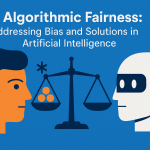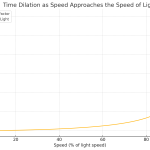While Artificial Intelligence (AI) has achieved remarkable success through classical computing architectures, it faces limitations in solving complex problems and processing massive datasets efficiently. Quantum computing presents a revolutionary paradigm with the potential to overcome these constraints. This article examines the concept of Quantum Artificial Intelligence (QAI), its foundational differences from classical AI, its theoretical basis, potential applications, and the technical challenges it faces. Additionally, it provides insights into QAI’s projected role in the future of computational science.
1. Introduction AI systems have demonstrated impressive capabilities in areas such as image recognition, natural language processing, and recommendation systems. However, traditional computing struggles with NP-hard problems and high-dimensional data analysis due to limited computational efficiency. Quantum computing, leveraging principles of quantum mechanics like superposition and entanglement, offers an opportunity to significantly enhance information processing beyond the classical paradigm.
2. Fundamentals of Quantum Computing Quantum computing utilizes quantum bits (qubits) instead of classical bits. Qubits can exist in multiple states simultaneously (superposition) and exhibit entanglement, enabling powerful correlations between particles. These properties allow for massive parallel computations, potentially leading to exponential speedups in certain algorithms.
3. What is Quantum Artificial Intelligence (QAI)? QAI is an emerging field that integrates quantum information processing with AI models. Its primary objective is to harness quantum algorithms to build AI systems that learn faster, analyze more data with fewer resources, and discover complex patterns more effectively.
Potential applications of QAI include:
- Quantum-enhanced machine learning
- Quantum neural networks
- Quantum-accelerated optimization
- Quantum-based data security
4. Potential Use Cases Quantum AI could revolutionize several domains:
- Drug discovery and bioinformatics: Simulating molecular interactions with high precision
- Financial modeling: Accelerated risk analysis using multivariate calculations
- Cybersecurity: Enhancing data protection through quantum cryptography
- Logistics and supply chain: Solving complex optimization challenges
5. Challenges and Limitations QAI remains in a nascent stage and faces multiple theoretical and technical hurdles:
- Stability issues in quantum hardware (decoherence)
- Limited availability of scalable qubit systems
- Lack of robust quantum error correction
- Absence of standardized quantum algorithms for AI
6. Future Outlook Although current QAI applications are largely experimental, advancements in quantum processor technology are expected to accelerate its practical adoption. Hybrid systems combining classical and quantum computing are likely to play a critical role in solving advanced data analytics tasks in the near future.
Conclusion Quantum Artificial Intelligence represents a transformative shift in computational paradigms. With its immense theoretical potential, QAI is poised to elevate AI processing power to unprecedented levels—once technical barriers are overcome. Academia and industry must proactively prepare for this shift, recognizing QAI as a foundational technology of the future.


